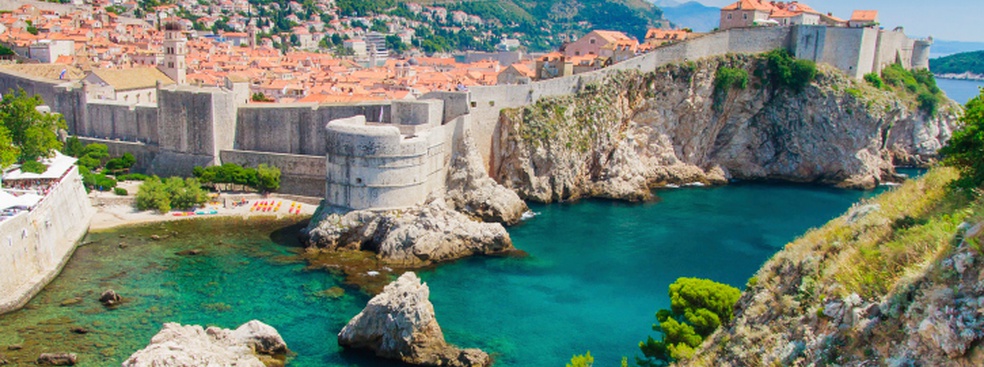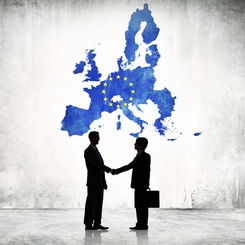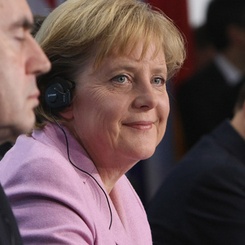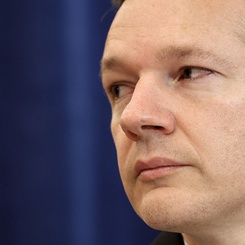On July 1, 2013, some 10 years after the recognition of its candidacy, Croatia has finally become the 28th member of the European Union. Serbia, whose candidacy was recognized in 2012, will in all likelihood one day follow suit. And while Iceland’s future is less clear, the enlargement of the European Union appears to continue, despite any economic or social crises.
In this analysis, we shall not even get into the dreaded debate over Turkey's candidacy, or the candidacies of Bosnia, Kosovo and Macedonia. The effects of "enlargement fatigue" are already being felt in Western Europe, even before we start to talk about who may join after Serbia. In fact, the door to EU membership could soon be closed for some time.
Since, with each new Member State, the European Union does more than just grow in size. Let us consider the lesser-known consequences of enlargement: the change it is provoking in the Council, which remains the main forum for European decision-making. Today, we are giving a voice to large number of "small" Member States – of course this term has become a "dirty word" in Brussels but we use it here without negative intent. How do these “small” countries impact the Council and shape the results of negotiations?
These "small" states each have less than 10 votes of the 345 distributed around the Council table. Croatia (with a population of 4.2 million) ranks 21st among the Member States and has, like Ireland, 7 votes within the Council. In comparison, "big" nations like France, Germany, Italy and the United Kingdom each hold 29 votes.
The thing is, the number of "small" countries on the Council has steadily increased since 2004, growing from four – Denmark, Finland, Ireland and Luxembourg – to eleven with the addition of Malta, the Eastern and the Baltic States. Together, these smaller states make up a third of the Member States. This means that the Council has become increasingly fragmented.
But it is not so much about how many votes each country has, but how these votes impact proceedings: Can the delegates of smaller countries intervene in proceedings? Do they have the resources to influence negotiation by throwing on the table alternative proposals? Do they have the leverage to build alliances? We may even ask if these smaller countries have the administrative capacity to read and form opinions on the numerous documents under discussion. Indeed, when debated subjects get very technical – like in the case of the double-hull oil tanker debate or the recent study on GMOs – and when subjects on the floor follow each other in quick succession, it is not easy to keep up with the pace.
Of course, influence is about more than just voting rights. Some "small" Member States are very active, including Belgium (10 million inhabitants, 12 votes), Sweden (9.5 million inhabitants, 10 votes) and Portugal (10 million inhabitants, 12 votes). Even with only a population of 5 million and a mere 7 votes, a good Finnish diplomat can work miracles. But in general, smaller countries remain relatively quiet around the table, since there are usually a large number of documents to analyze and preparation demands human resources.
Taking up some fifteen large rooms at the same time, negotiations are a daily reality at the European Council. Here, bigger states have the luxury of moving quickly and being well heard, while the smaller states generally limit their influence by sometimes being silent for days. For example, it is not uncommon for more than fifteen States to remain silent during a given negotiation.
In order to get things done, those presiding over debates have started to reverse the usual logic: instead of seeking out favorable votes, it has now become more efficient to locate those potential “silent” votes. The rules of the Treaty of Rome - which states that the favorable votes are counted-for - have effectively been reversed in practice: those who are silent, have been deemed favorable by omission. The Lisbon Treaty has even deleted references to favorable votes. In this game, especially on technical subjects, victories are sometimes won thanks to the silence.
In fact, we could now go so far as to say that it is in the best interest of the European Commission to add timid or downright silent Member States to the Council: the silence of the "small" countries adds volume to the voices of the “larger”. The introduction of the new double majority rule in 2014 – whereby 55% of states representing 65% of the population will count as majority – will not really change much here.
The silence is almost deafening because the more “small” states there are in the Union, the less we can really debate! On key topics like the annual budget or the candidacy of Turkey, each country certainly has an opinion. But these topics are only the tip of the iceberg and there is a serious lack of debate on the vast majority of negotiations. The arrival of Croatia and Serbia will only accentuate this trend.
By expanding the Union to include States which do not have the administrative strength to monitor all the topics that are fundamental to European integration, we are changing the nature of the Union by giving more power to those who start negotiations: namely, the European Commission and its rotating Presidency. Expanding the European Union is more than just adding members to a club, it is changing the nature of the Union as a negotiation entity, taking us towards the centralization of power by the “big” players who have the capacity to make proposals and launch debates.









